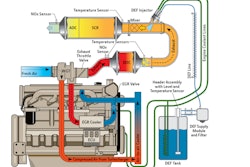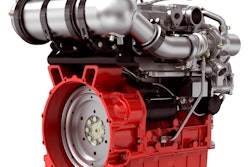Work on international standards for solid biofuels continues to expand, with new projects for thermally treated solid biofuels and safe handling of pelletized biofuels the latest to be introduced within the International Organization for Standardization (ISO).
The work is being spurred by the needs of a rapidly expanding industry, according to Scott Cedarquist of the American Society of Agricultural and Biological Engineers (ASABE), which coordinates U.S. participation in the projects. “In 2007 the ISO organized Technical Committee 238 (TC238) to develop standards for solid biofuels,” says Cedarquist. “At the fifth and most recent meeting of the committee, it was reported that international participation had grown to 36 countries from five continents.”
The committee’s primary focus in 2007 was to utilize an existing portfolio of European solid biofuel standards as the basis of ISO standards, and its work was divided into six areas: terminology, classifications, quality, physical tests, chemical tests and sampling.
Since then, the magnitude of international shipments of this important fuel source has grown, with up to 45,000-tonne allotments of wood pellets routinely being shipped from North America to Europe.
The recent meeting of TC238, hosted in Bangkok by the Thai Industrial Standards Institute, not only showed evidence of the expanded global interest in the subject area, it also reflected a slight shift in work priorities. Existing, regional quality-assurance protocols were deemed adequate, and the group spent significant time discussing new projects for thermally treated solid biofuels and safe handling of pelletized biofuels.
“Adoption of these consensus documents, when that happens, will facilitate international trade,” says Cedarquist.
In the US, ASABE coordinates the national positions on draft standards via an established committee of experts.



















